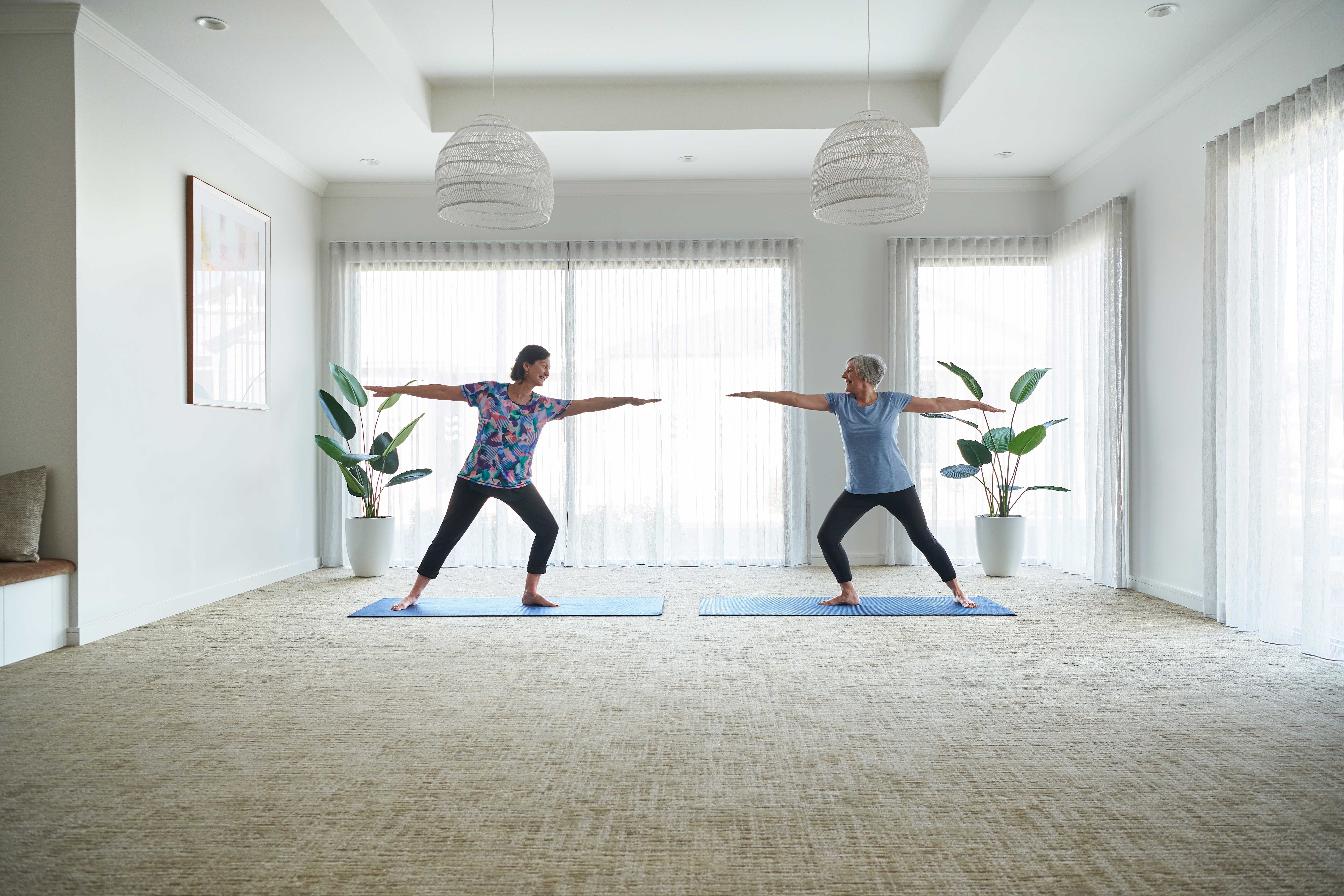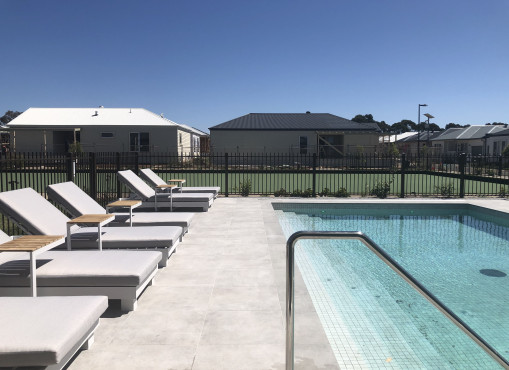- Home
- /
- All blog articles
- /
- 9 Health Benefits of Socialization: The importance of staying social as we grow older

9 Health Benefits of Socialization: The importance of staying social as we grow older
We spend our whole lives surrounding ourselves with people we love. Friends, family, colleagues, favourite baristas that always remember your coffee order; every single one of them contributes towards our all-important social support network. Social connections have been proven to improve our overall well being.
Our social circle is actually at its peak somewhere in our mid 20’s. A study has found that around age 25 is where you’ll have your maximum number of connections, with a ‘plateau’ around age 45 - 55, followed by a decline from age 55 onwards, but only because we start choosing to invest in fewer, but more meaningful relationships.
Maintaining these close social ties is incredibly important as we get older and move into new stages of life, such as retirement. Remaining socially active has a wide variety of positive health outcomes, proving that friendships and connections are good for our mental health, physical health, and emotional health. So here’s a list of health benefits of staying social and keeping connected to inspire you to pick up your phone and make some plans.
1. Keeping connected is great for mental health
Socialization helps to improve our mental and emotional health, and the number and strength of your relationships can affect your mental and physical well being. There are confirmed links between lower rates of depression and anxiety, better self-esteem, stronger levels of empathy, and more trusting relationships. These benefits not only make you happier, but there’s a positive flow-on effect of people wanting to spend more time with you, creating a positive feedback loop to support your continued wellbeing - and theirs!

2. It will give you purpose
‘Ikigai’ is a Japanese concept referring to not only joy and happiness, but having a sense of purpose, and a reason for living. Strong connections and relationships can help Ikigai, which is strongly assumed to be associated with strong interpersonal relationships. A study on Ikigai showed that participating in social activities with others led to an increase of the Ikigai, particularly in older women, which means a weekly Girls Night is good for the soul, BYO bubbly.
3. It stimulates brain activity
Your brain is hard at work every time you laugh at a bad joke, and during every conversation you have. It’s navigating what to do next and what to remember, which strengthens neural pathways and keeps your brain from wandering off and daydreaming. So next time you can’t be bothered with a Sudoku, organize to see a friend instead and put your brain to work cracking jokes and making memories.

4. It helps ward off degenerative disease such as dementia and Alzheimers
Participating in social activities with friends could lower the risk of developing dementia. A study found that someone who saw friends almost every day at the age of 60 had a 12% lower risk of developing dementia later on, compared with someone who only saw a couple of friends once every few months, which sounds like a good excuse for a night out to us! Keeping your brain active and engaged helps train it to hold onto important information, like birthdays and passwords, and also not-so-important information that makes you an asset at trivia nights. We love a bit of balance.
5. Connection brings confidence
There’s a strong correlation between connection and confidence. Surrounding yourself with a support network and people you love instantly gives you a confidence boost, and this feeling is mirrored in every day interactions. Similarly, if you’re feeling out of place or disconnected in a situation, speaking to someone and forming a connection can help you feel more comfortable, like when you’re at a party where you don’t know anyone and bond with someone over the snack table. Allies and connections help us feel accepted and safe, which means we’re more likely to try new things, challenge ourselves, and continue growing. That confidence then encourages us to continue reaching out to new connections, building new relationships, and strengthening old ones.

6. It can reduce blood pressure issues associated with loneliness
Can loneliness break your heart? Kind of. Studies show that people who feel lonely can have blood pressure as much as 30 points higher than non-lonely people, and have a higher risk of hardened arteries and a stressed out heart. This is because loneliness is a form of stress, which increases the output of cortisol, which in turn increases blood pressure. So, de-stress your heart by de-stressing with friends.
7. It helps you keep fit
When we’re together with other people, we’re happier, healthier, and more active. Our health is made up of a combination of mental, physical, and emotional aspects, and social activity often leads to physical activity, whether it’s a morning walk, joining a sports team together, or laughing so hard it’s practically an ab workout. Find your next doubles partner at a Lifestyle Community, or check out the variety of activities and sporting spaces designed to work up a sweat.

8. You’ll learn new things
Being surrounded by an active and social support network means you’re more likely to learn or try new things. Some things you may pick up from your friends or family, like someone encouraging you to try a pottery class together to channel your inner Patrick Swazye. Other things you may have been interested in before but didn’t have the time to pursue, and you could discover a love for tennis, or maybe learn a new language. Experiencing things out of your comfort zone and forming friendships through doing it is tres bon, sehr gut, molto bene! You’ll be keeping active physically and mentally, all whilst spending more time with people you love. Where do we sign up?
9. You’ll live longer
Strong, healthy relationships lead to a strong, healthy life. They strengthen your immune system, which helps you recover from disease faster, and may help you live longer. We know that seems like a big call, but it’s scientifically confirmed. The study also found that more social people have better health behaviors, such as eating healthier, smoking less, and being slightly more physically active. Basically, good food, good habits, and good friends contribute to a good long life…how good is that?
Maintaining an active social life is easy when you’re living within a Lifestyle Communities® home. As part of a friendly community, you’ll find new friends in your neighbours, and have endless opportunities to connect with other Lifestylers and live it up with world class amenities, clubs, and attractions. You could make a splash at the pool together, take a swing at a nearby golf course, or join the Social Club for one of the many activities they have going. Whatever your version of living large looks like, we’re here to support you in finding it.
We would love to help if you’d like to find out more about the community feel and opportunities at a Lifestyle Community. Come have a chat and see how you could downsize to a bigger life


